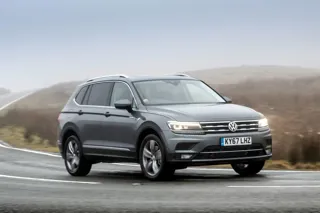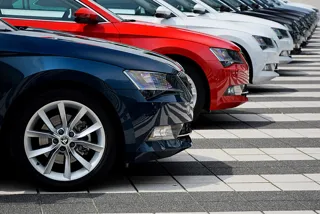The UK new car market declined by 3% in November, while fleet and business sales held steady compared to the same month last year.
The figures, from the the Society of Motor Manufacturers and Traders (SMMT), show that there were some 158,639 units registered, with fleet and business responsible for more than half the market (89,284 units).
Stalling consumer confidence, supply delays due to implementation of the new WLTP emissions test and model replacement all combined to affect overall sales, claimed the SMMT.
Reflecting recent trends, demand for petrol and alternatively fuelled vehicles (AFVs) rose 3.5% and 24.6% respectively, but failed to offset a 16.7% fall for diesel cars.
Mike Hawes, SMMT chief executive, said: “Model and regulatory changes combined with falling consumer confidence conspired to affect supply and demand in November.
“The good news is that, as supply constraints ease, and new exciting models come on sale in the months ahead, buyers can look forward to a wide choice of cutting-edge petrol, diesel and electrified cars.
“It’s now critical that a Brexit deal is secured to boost consumer confidence and provide a stimulus to the new car market as we enter the New Year.”
In the year-to-date, more than 2.2 million new cars have been registered, a 6.9% fall on the first 11 months of 2017, but is in line with industry expectations given current challenging conditions, said the SMMT.
Fleet and business new car registrations for year-to-date show a 7.5% decline year-on-year, with 1,225,395 units registered so far this year, compared to some 1,321,201 units in the first 11 months of 2017.
Ashley Barnett, head of consultancy at Lex Autolease, said: “This has been a challenging year for fleets, with changes to emissions testing and tax regulations making it difficult to plan for the future.
“As well as a decline year-on-year, it is no surprise to see registrations are down compared with this time four years ago. Based on the average 48-month fleet replacement cycle, this indicates that drivers who renewed in Q2 2014 are choosing not to now.
“Whether they are moving away from company cars into grey fleet or holding on to older vehicles for longer, progress towards the Road to Zero targets will be slowed as a result.
“Looking ahead to next year, increased clarity on company car taxation due in spring should give drivers and fleet decision makers the confidence to start placing orders again.
“We also expect to see the Government’s focus on sustainability gather pace and we hope that as part of this, mobility as a whole will be reviewed.
“Fleets have always been the pioneers of new vehicle technology and have an important role to play in reducing emissions, but it is important to look beyond the circa one million company cars on the roads and drive behavioral change across the board.”
Jon Lawes, managing director of Hitachi Capital Vehicle Solutions, believes that, while the 24.6% year-on-year rise in motorists buying hybrid or electric cars, will not be enough to offset the market’s overall decline, it should be welcomed given the challenges the motor industry has faced in recent months.
“The challenge is sustaining this enthusiasm once subsidies for hybrid cars are removed, which is why the recent green light from Ofgem for Optimise Prime is so important," he said. "This will address the challenges facing commercial adoption of EVs and create a roadmap to overcome critical barriers to adoption which is vital for the UK market.”























Login to comment
Comments
No comments have been made yet.